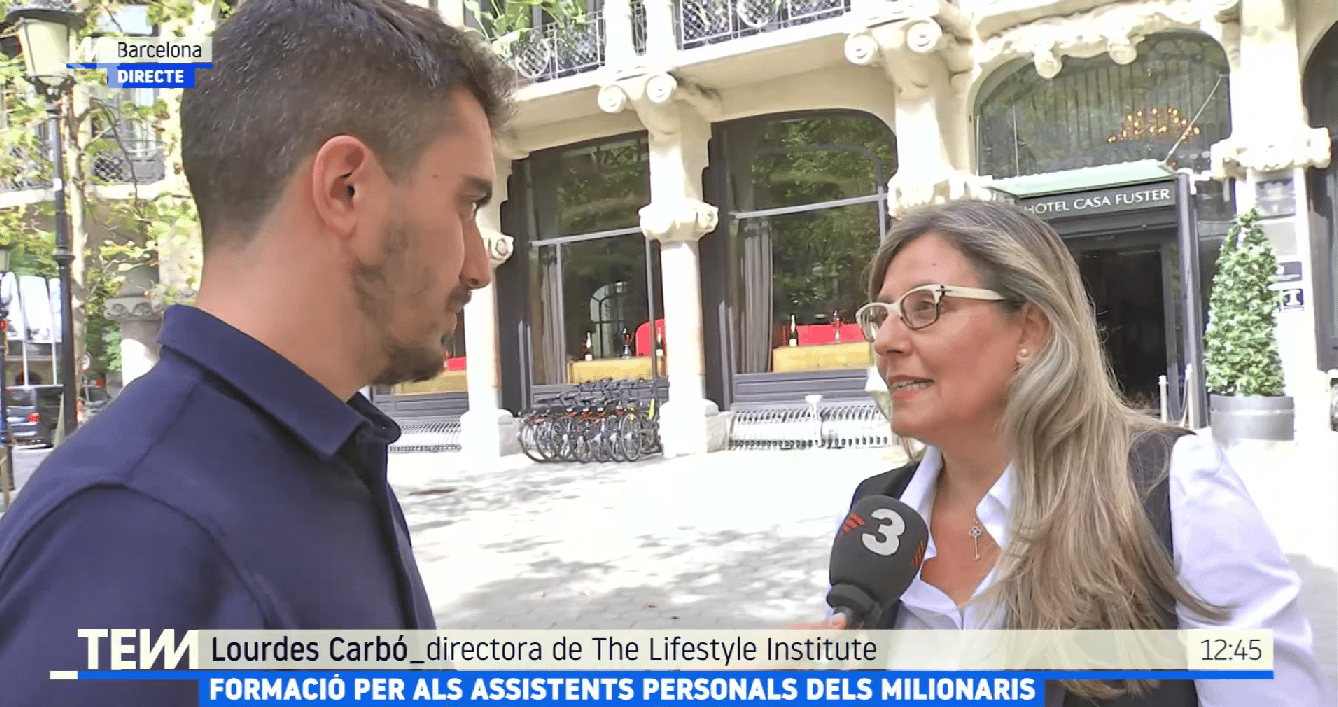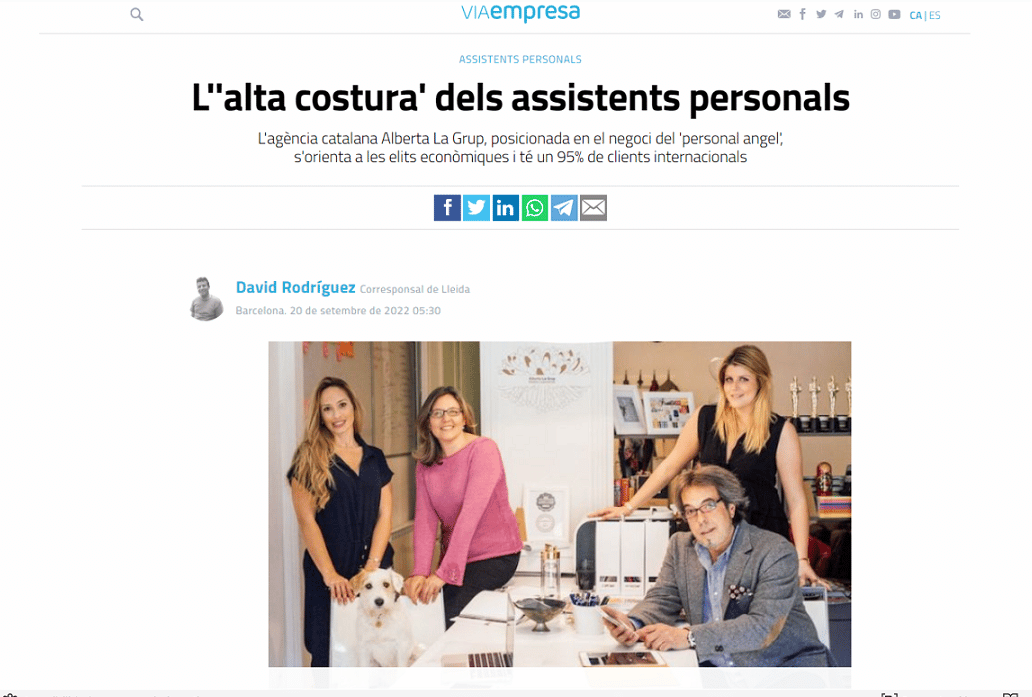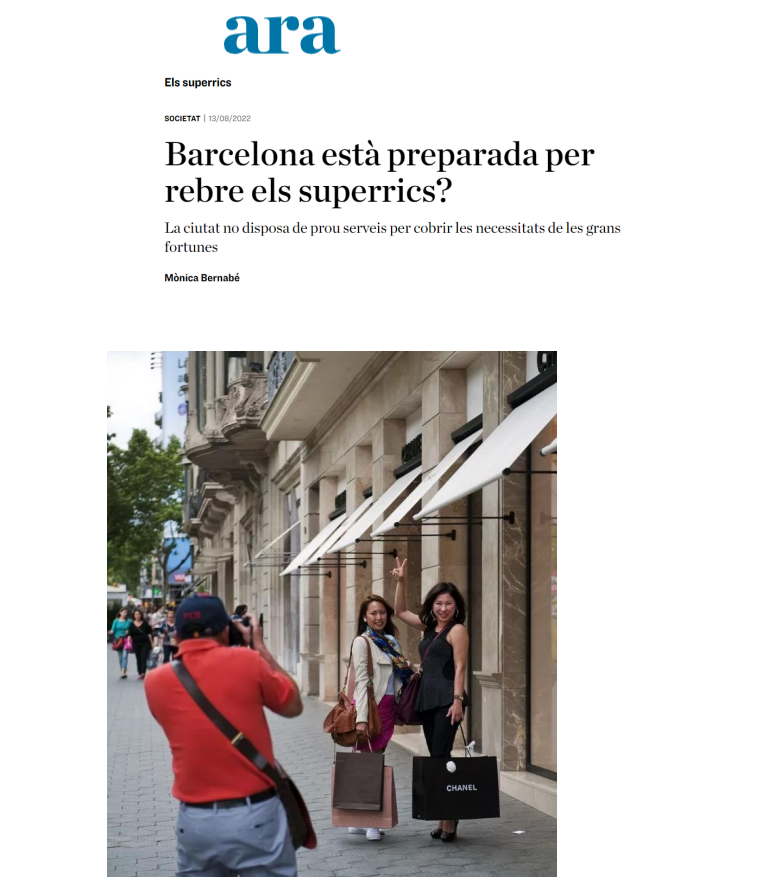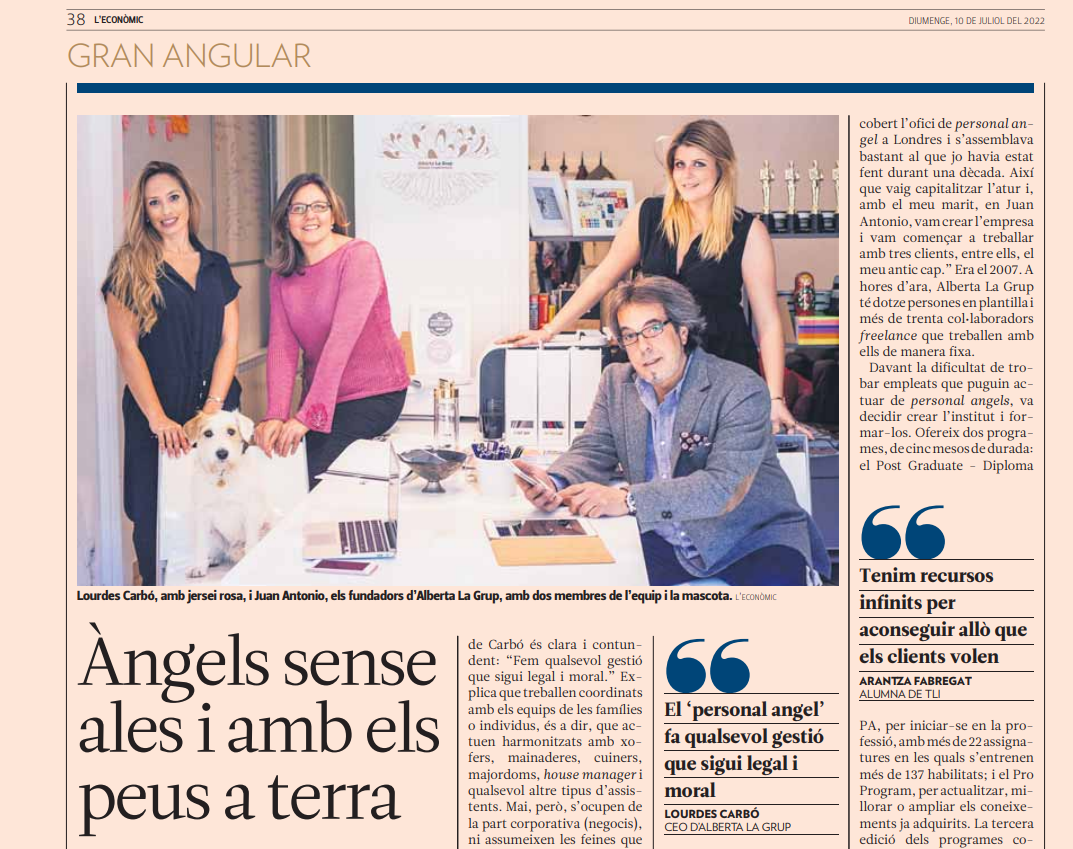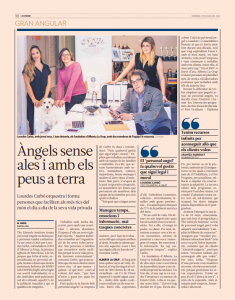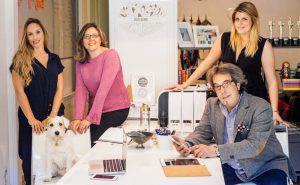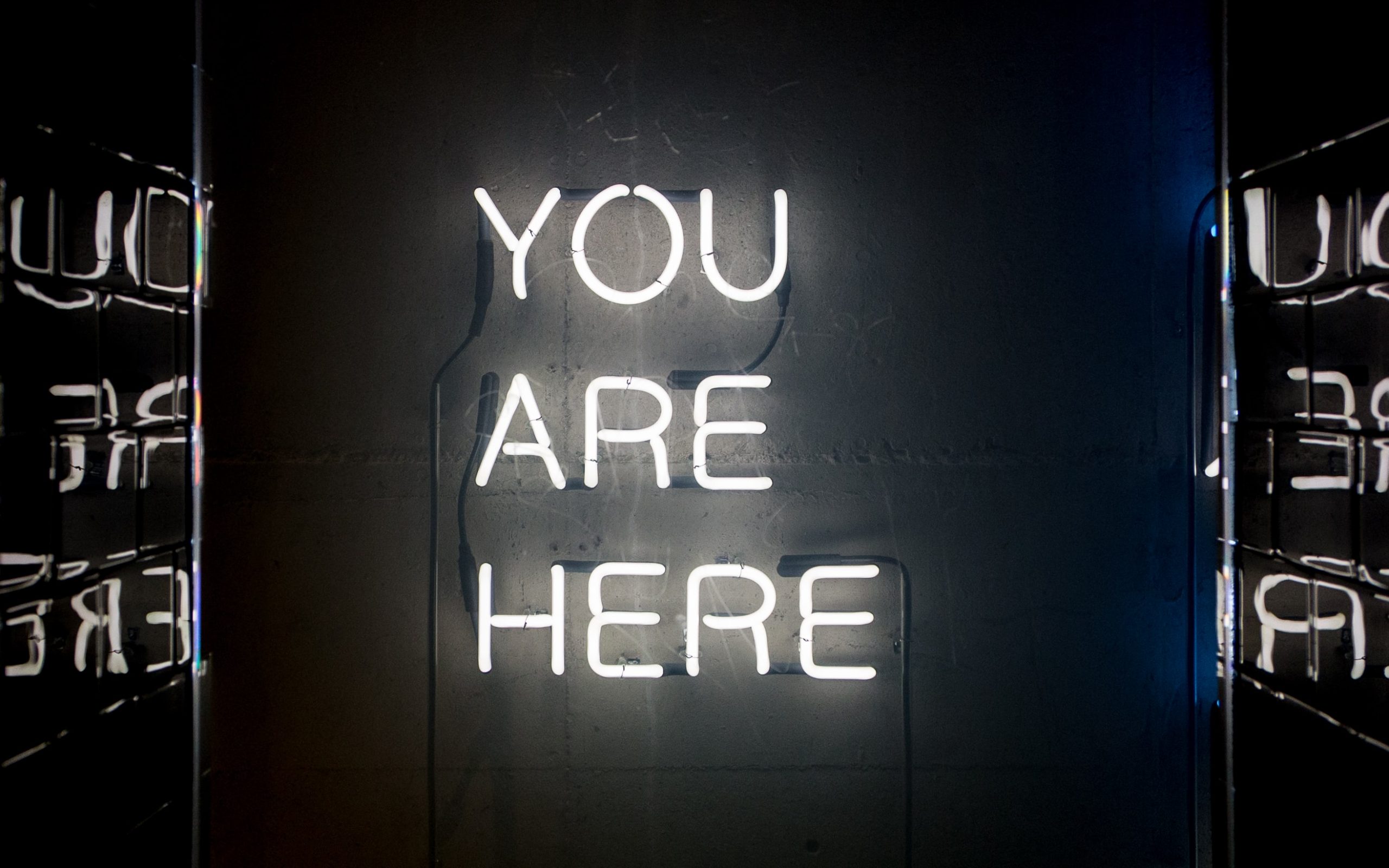Mònica Bernabé
BARCELONA
Un hombre con traje de chaqueta negro, camisa blanca y corbata abre solicitando la puerta de entrada a los clientes y les da la bienvenida a la tienda. Hay dos plantas. En la primera, una dependienta de origen asiático atiende a dos jóvenes que parecen surcoreanas y que se interesan por unos pañuelos de cuello. En la segunda, un par de clientas más, también asiáticas, miran los pintalabios expuestos en un mostrador mientras esperan que las atiendan. Un poco más allá también esperan tres mujeres con pañuelo en la cabeza que proceden sin duda de algún país del golfo Pérsico, y una chica de origen indeterminado que, a pesar del calor que hace, lleva una especie de plantofas de pelo de color rosa que deben ser de diseño, porque, si no, no se entiende que alguien salga con eso de casa. En una butaca descansan dos mujeres más que parecen sacadas de una película: llevan pamela y gafas de sol aunque dentro de la tienda no hay mucha luz, y una de ellas tiene en los brazos un caniche de pelo blanco y arriesgado. Como el resto, también se esperan.
Aunque parezca mentira, hay cola en Hermès, una de las tiendas de lujo más exclusivas del paseo de Gràcia de Barcelona. Porque hay gente a la que las cosas le siguen yendo francamente bien, aunque a la mayoría de mortales no les quede más remedio que estrecharse el cinturón por la inflación descontrolada. Son los ricos o superricos.
“Tenemos cuenta de la tienda en Las Vegas”, comenta una pareja que habla español con acento latinoamericano y que se dispone a comprar unos mocasines en Hermès, después de que él haya estado un buen rato emprobándose varios pares. En cambio, dos chicas de cuerpo escultural y bronceado se decantan por un bolso minúsculo de color blanco que hay expuesto en un estante. El dependiente, antes de enseñárselo, se pone unos guantes para no tocar el bolso directamente con las manos.
Unos cuantos zapatos, alguna prenda de vestir, varios accesorios y poca cosa más se puede encontrar en Hermès. Eso sí, todo es extremadamente caro. Por ejemplo, una simple toalla de playa cuesta 350 euros; un top de mujer, 850, y un jersey de lana, que sorprende que lo vendan en esta época del año, 1.300 euros.
Servicios de ‘concierge’
“Barcelona atrae mucho, realmente hay oportunidad de negocio”, asegura Lourdes Carbó, que es fundadora y directora de Alberta La Grup, una empresa catalana que precisamente se dedica a asistir grandes fortunas para hacerles la vida privada un poco más fácil. Es decir, ofrece lo que se llama servicios de concierge, y este año se ha convertido en una de las agencias más destacadas del sector, según un ranking de la revista Spear’s, que es una publicación destinada a asesorar a los ricos sobre los mejores servicios del mercado: por ejemplo, los mejores asesores de whisky, los mejores expertos en equitación, los mejores consejeros financieros para comprar un yate o un avión privado, las mejores niñeras para cuidar a sus hijos…
“Si una familia quiere que su hijo estudie en una universidad privada, nosotros hacemos las gestiones. O si quieren que traslademos un coche de un país a otro, también. O que les preparamos el esmoquin para ir a la ópera, o que les llenemos la nevera”, pone como ejemplos Para explicar a qué se dedican exactamente. Las peticiones que reciben pueden ser de todo tipo, incluso a veces estrambóticas, excepto vinculadas a negocios, finanzas y temas legales, porque estos aspectos no los tocan.
A los superricos les gusta Barcelona porque pueden atracar el yate y en quince minutos estar en el centro de la ciudad, y también por la discreción, la gastronomía, la buena sanidad privada y el ocio.
Y sí, como dice Carbó, Barcelona realmente agrada a los superricos por diferentes razones: “Porque pueden atracar el yate y en quince minutos estar en el centro de la ciudad. Por la discreción, la gastronomía, la buena sanidad privada, las buenas infraestructuras, el ocio, el entretenimiento y la cultura”, detalla. El problema, según asegura, es que a veces la ciudad no está a la altura.
“En Barcelona es imposible alquilar tres Aston Martin en una misma semana. Puedes encontrar uno, pero no tres. O vas a una tienda de lujo del paseo de Gràcia y no tienen toda la colección. Y eso hace que perdamos clientela, porque si no encuentran lo que quieren, cogen un avión y se van a Milán a comprar”, pone como ejemplo. “Tampoco hay buenas agencias para buscar niñeras y las niñeras que encuentras no hablan inglés. O directamente hay servicios que aquí ni existen: por ejemplo, a menudo nos piden una residencia de ancianos que sea como un hotel de cinco estrellas”. Carbó recuerda que Barcelona compite con ciudades de primera liga, como Londres, Nueva York o Dubai, donde sí hay todo tipo de servicios. “En Dubai pueden cerrar una tienda para que alguien vaya a comprar”, afirma.
En Barcelona, de momento, no suelen cerrar establecimientos para clientes exclusivos. De hecho, en otras tiendas de lujo del paseo de Gràcia también se forman colas en la calle. En la de Gucci hay tanta gente a última hora de la tarde que una trabajadora del establecimiento sale al exterior para advertir a los clientes que la tienda cerrará de aquí solo media hora y no puede garantizar que todo el mundo pueda entrar antes. Se dirige a él en inglés, dando por hecho que todos son extranjeros. Y es así, todos lo son.
“¿Ya sabes qué quieres?”, pregunta entonces un hombre a su mujer. “Lo estoy mirando”, responde ella, mientras consulta la web de Gucci en el teléfono móvil. Ambos hablan español con acento latinoamericano. Cuando entran en la tienda, la mujer ya sabe qué quiere comprar: un pequeño bolso de color rosa que vale 2.650 euros.
Carbó explica que muchos de sus clientes son venezolanos, pero también tienen clientes mexicanos, colombianos, norteamericanos, alemanes, italianos… Eso sí, más del 90% son extranjeros. “Se trata de personas que tienen más de una residencia en el mundo, suelen viajar en avión privado y disponen de más de treinta trabajadores [en el hogar] entre mayordomos, criados, niñeras, choferes, asistentes personales, seguridad…” Carbó declina concretar la cuantía de estas fortunas. “Tener un yate es un claro símbolo de estatus, porque un barco supone gastar constantemente dinero en mantenimiento”, se limita a decir.
Un puerto para yates de lujo
De hecho, Barcelona tiene un puerto destinado a yates y superiots: la Marina Port Vell, situada en el barrio de la Barceloneta. Cuenta con 151 amarres y uno de los muelles más largos del mundo donde pueden atracar superiots de hasta 190 metros de eslora. Es una zona exclusiva, con vigilancia privada y a la que el ARA no ha podido acceder a pesar de haberlo solicitado. Los barcos que amarran son “propiedad de miembros de la realeza, directores y CEO de las principales empresas del mundo, así como empresarios de éxito y renombre y personajes conocidos”, han informado fuentes de la Marina Port Vell, que no han precisado cuántos amarres están ocupados actualmente. “A lo largo del año la marina puede albergar hasta 300 embarcaciones”, afirman las mismas fuentes, además de aclarar que los meses de mayor ocupación son los de “primavera y otoño”. Aunque ahora no hay muchos yates, igualmente llaman la atención. De hecho, es habitual ver turistas –los que no tienen tanto dinero, lógicamente– haciéndose selfies ante el puerto con las embarcaciones de fondo.
“Si tuviéramos más servicios especiales, vendrían más familias con poder adquisitivo. No digo que hagamos un Port Aventura para ricos, pero, si nos queremos dirigir a este mercado, nos tenemos que preparar muy bien”, afirma Carbó, que insiste que Barcelona todavía tiene que recorrer un largo camino en este sentido.
Uno de los nuevos servicios que se están ofreciendo en la ciudad es la posibilidad de comprar apartamentos de lujo que tienen las mismas prestaciones que un hotel de cinco estrellas. La torre Antares, situada delante del Parc del Fòrum, es un ejemplo. Es propiedad del fondo de inversión Shaftesbury, pero un 25% de los apartamentos ya han sido vendidos. Todos, a extranjeros superricos. El primer residente se instaló el febrero pasado. La empresa Alberta La Grup se encarga de los servicios y la directora de operaciones, Thaïs Guerrero, se encarga de hacer un tour al ARA por el edificio.
La torre tiene 27 plantas y 88 apartamentos de lujo. El más barato vale 850.000 euros y tiene una superficie de 115 metros cuadrados. El mayor mide 795 metros cuadrados y el precio no se ha hecho público. Sea como fuere, en todos los casos, los pisos son espectaculares, con grandes ventanales, vistas al mar y espacios descomunales. En algunos incluso desde la bañera es posible ver la Sagrada Familia y el Tibidabo como si fuera un mirador. Además, disponen de servicio de mantenimiento, seguridad y limpieza, y espacios comunes con piscinas, gimnasio, spa… “Este tipo de residencias ya existían en Madrid. Allí van más avanzados”, asegura Guerrero.
En lo que todavía hay que dar un paso de gigante en Barcelona es en la disponibilidad de personal que esté preparado para trabajar para estas fortunas. Precisamente con este objetivo, Alberta La Grup también imparte cursos para formar lo que ellos llaman personal angels, es decir, asesores personales que ayuden a los superricos a hacer su día a día más fácil. El curso, impartido en inglés y francés y de tres meses y medio de duración, incluye asignaturas como gestionar una casa, encargarse de un macroiot y organizar viajes familiares. Según Carbó, de momento todos los alumnos han acabado encontrando trabajo y cobran sueldos generosos, entre 50.000 y 70.000 euros al año. Quizás esa es la alternativa en Barcelona al turismo low cost.


